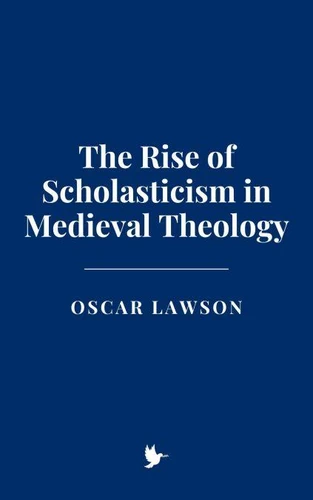The Rise of Scholasticism in Medieval Theology
Par :Formats :
Disponible dans votre compte client Decitre ou Furet du Nord dès validation de votre commande. Le format ePub est :
- Compatible avec une lecture sur My Vivlio (smartphone, tablette, ordinateur)
- Compatible avec une lecture sur liseuses Vivlio
- Pour les liseuses autres que Vivlio, vous devez utiliser le logiciel Adobe Digital Edition. Non compatible avec la lecture sur les liseuses Kindle, Remarkable et Sony
 , qui est-ce ?
, qui est-ce ?Notre partenaire de plateforme de lecture numérique où vous retrouverez l'ensemble de vos ebooks gratuitement
Pour en savoir plus sur nos ebooks, consultez notre aide en ligne ici
- FormatePub
- ISBN8230507437
- EAN9798230507437
- Date de parution20/02/2025
- Protection num.pas de protection
- Infos supplémentairesepub
- ÉditeurIndependently Published
Résumé
The history of medieval theology is inseparable from the intellectual and cultural fabric of the Middle Ages, a period spanning roughly from the 5th to the 15th centuries. This era witnessed the profound development of Christian theological thought, intertwined with the political, social, and philosophical forces that shaped Western Europe during a time of great upheaval and transformation. The collapse of the Roman Empire in the West in 476 CE marked the beginning of a period often referred to as the Dark Ages, a time that saw the decline of classical learning, yet also the preservation of ancient texts and the establishment of Christianity as the dominant force in the intellectual life of Europe.
As the centuries unfolded, a vibrant theological tradition emerged, one that sought to reconcile reason and faith, explore the nature of God, and define the relationship between humanity and the divine. It is within this context that scholasticism arose as a systematic approach to theology, blending classical philosophy with Christian doctrine.
As the centuries unfolded, a vibrant theological tradition emerged, one that sought to reconcile reason and faith, explore the nature of God, and define the relationship between humanity and the divine. It is within this context that scholasticism arose as a systematic approach to theology, blending classical philosophy with Christian doctrine.
The history of medieval theology is inseparable from the intellectual and cultural fabric of the Middle Ages, a period spanning roughly from the 5th to the 15th centuries. This era witnessed the profound development of Christian theological thought, intertwined with the political, social, and philosophical forces that shaped Western Europe during a time of great upheaval and transformation. The collapse of the Roman Empire in the West in 476 CE marked the beginning of a period often referred to as the Dark Ages, a time that saw the decline of classical learning, yet also the preservation of ancient texts and the establishment of Christianity as the dominant force in the intellectual life of Europe.
As the centuries unfolded, a vibrant theological tradition emerged, one that sought to reconcile reason and faith, explore the nature of God, and define the relationship between humanity and the divine. It is within this context that scholasticism arose as a systematic approach to theology, blending classical philosophy with Christian doctrine.
As the centuries unfolded, a vibrant theological tradition emerged, one that sought to reconcile reason and faith, explore the nature of God, and define the relationship between humanity and the divine. It is within this context that scholasticism arose as a systematic approach to theology, blending classical philosophy with Christian doctrine.

















